The Chazen Institute draws on the expertise of world-class faculty members to help shape the thinking and discourse on major global business issues.
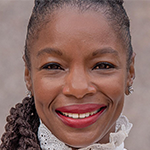

Modupe Akinola
Professor of Management
Faculty Director, Sanford C. Bernstein Center for Leadership & Ethics
Columbia Business School
Areas of expertise: Diversity, Human Resource Management, Leadership
Modupe Akinola examines how organizational environments—with the pressures of deadlines and multitasking—can lead to stress, and how this stress can spill over to affect performance. She studies why some people thrive under stress while others buckle, looking at how we react psychologically and physiologically to stressful situations and how these responses can affect outcomes like negotiations and creativity. She also studies workforce diversity, including the biases that affect the recruitment and retention of women and people of color in organizations.
Recent media:
"A Columbia Professor Helps Chris Hemsworth Stress-Proof His Life," Columbia Magazine, Spring/Summer 2023
"Bringing DEI into the Core of Our Institutions," INSEAD Knowledge, March 2023
"Why Is It So Hard to Speak Up at Work?", New York Times, March 15, 2021


Laura Boudreau
Assistant Professor, Economics Division
Columbia Business School
Areas of expertise: Development economics, organizational economics, labor economics, political economy
Professor Boudreau's research primarily focuses on working conditions, labor rights, and firm productivity in developing countries. She is especially interested in how the intersection of global supply chains with local institutions affect firms’ and workers’ outcomes and how labor market institutions affect economic development.
Recent media:
"Why Actors, Hotel Workers, and So Many Others Are on Strike Right Now," Marketwatch, July 21, 2023
"Mark Zuckerberg on How to Run a Company in 2023," Wall Street Journal, March 15, 2023 (subscription required)
Research brief:
"A Critical Player in Workplace Safety," January 2020
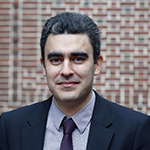
Omar Besbes
Vikram S. Pandit Professor of Business
Columbia Business School
Areas of expertise: Decision making/decision sciences, e-commerce, marketplace design, operations management, pricing and revenue management
Professor Besbes’s research interests are in the area of data-driven decision-making with a focus on applications in e-commerce, pricing and revenue management, online advertising, operations management, and service systems.
Recent media:
"MBAs Need This Skill Set to Succeed, Columbia Business School Dean Says," Fortune, June 8, 2022


Patrick Bolton
Barbara and David Zalaznick Professor of Business
Columbia Business School
Area of expertise: Corporate finance and international financial architecture
Professors Bolton’s research is in contract theory and contracting issues in corporate finance and industrial organization. A central focus of his work is on the allocation of control and decision rights to contracting parties when long-term contracts are incomplete. He is the author of Contract Theory, (2004) with Mathias Dewatripont and co-edited a second book with Howard Rosenthal, Credit Markets for the Poor.(2005).

Anu Bradford
Henry L. Moses Professor of Law and International Organization
Director, The European Legal Studies Center
Columbia Law School
Areas of expertise: International trade law and international political economy, International antitrust law, international relations theory, European Union law
A leading scholar on the EU’s regulatory power and a sought-after commentator on the European Union, global economy, and digital regulation, Anu Bradford coined the term the Brussels Effect to describe the European Union’s outsize influence on global markets. Most recently, she is the author of The Brussels Effect: How the European Union Rules the World (2020), named one of the best books of 2020 by Foreign Affairs. Her next book Digital Empires: The Global Battle to Regulate Technology will be published by the Oxford University Press in September 2023.
Recent media:
"The Global Order of Digital Empires Is Only Just Holding Together," Financial Times, July 19, 2023
"The Race to Regulate Artificial Intelligence," Foreign Affairs, June 27, 2023
"The Brussels Effect: Regulating the World," Bloomberg, April 20, 2023
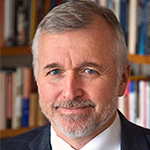
Thomas J. Christensen
James T Shotwell Professor of Public and International Affairs
Director, China and the World Program
School of International and Public Affairs
Columbia University
Thomas J. Christensen's most recent book is Lost in the Cold War: The Story of Jack Downey, America’s Longest-Held POW (Columbia Univ. Press, 2022). His earlier book, The China Challenge: Shaping the Choices of a Rising Power (W.W. Norton) was an editors’ choice at the New York Times Book Review, a “Book of the Week” on CNN”s Fareed Zakaria GPS, and the Arthur Ross Book Award Silver Medalist for 2016 at the Council on Foreign Relations. He was presented with a Distinguished Public Service Award by the United States Department of State.
Recent media:
"How to Avoid a War Over Taiwan," Foreign Affairs, October 13, 2022

William Duggan
Senior Lecturer in Business
Columbia Business School
Area of expertise: Leadership and organizational behavior
William Duggan is the author of three recent books on innovation: Strategic Intuition: The Creative Spark in Human Achievement (2007); Creative Strategy: A Guide for Innovation (2012); and The Seventh Sense: How Flashes of Insight Change Your Life (2015). In 2007 the journal Strategy+Business named Strategic Intuition “Best Strategy Book of the Year.” He has BA, MA and PhD degrees from Columbia University, and twenty years of experience as a strategy advisor and consultant.

R.A. Farrokhnia
Executive Director at the Dean's Office of Advanced Projects & Applied Research in Fintech at Columbia Business School
Adjunct Associate Professor of Business
Columbia Business School and Columbia Engineering
Areas of expertise: Economics, engineering, and fintech
R.A. Farrokhnia, a recipient of the Dean's Award for Teaching Excellence, is an Executive Director at the Dean's Office of Advanced Projects and Applied Research in Fintech. He also teaches courses at Schools of Business and Engineering; in addition, he is a lecturer and board member of the Knight-Bagehot Program at Columbia Graduate School of Journalism.
Recent media:
"The FTX Collapse Is a Harsh Lesson in Hype Advertising," Fast Company, November 13, 2022
"Bitcoin Plummets Below $20,000 for First Time Since Late 2020," New York Times, June 18, 2022

Nelson Fraiman
Professor of Professional Practice
Columbia Business School
Areas of expertise: Retailing, consulting and process industries
Professor Fraiman joined the faculty after a 17-year career at International Paper Company, where his most recent position was chief technology officer for eight manufacturing divisions. His research explores institutionalizing quality improvement.


Geoffrey Heal
Donald C. Waite III Professor of Social Enterprise, Economics
Columbia Business School
Areas of expertise: Economic theory and resource and environmental economics
The author of eighteen books and about two hundred articles, Professor Heal's research focuses on resource allocation in the presence of increasing returns to scale, growth theory, and the economics of exhaustible and renewable resources.
Recent media:
"Discounting the Distant Future: A Critique of the EPA's Analysis of the Social Cost of Carbon," Center on Global Energy Policy, June 6, 2023
"Here's Another Thing Keeping Prices High: Climate Change," CNN, February 1, 2022
"Ford Finds New Ways to Use Ocean Plastic," ABC7 Chicago, December 22, 2021
Research brief:
"The Path to Decarbonizing Energy," November 2020


Glenn Hubbard
Russell L. Carson Professor of Finance and Economics
Faculty Director, Jerome A. Chazen Institute for Global Business
Co-Director, Richman Center for Business, Law, and Public Policy, Columbia Business School
Areas of expertise: Public finance and macroeconomics
Glenn Hubbard, faculty director for the Jerome A. Chazen Institute for Global Business, is dean emeritus and Russell L. Carson Professor of Finance and Economics at Columbia Business School. In addition to writing more than 100 scholarly articles in economics and finance, Glenn is the author of two popular textbooks, author of The Wall and the Bridge: Fear and Opportunity in Disruption's Wake, as well as co-author of The Aid Trap: Hard Truths About Ending Poverty, Balance: The Economics of Great Powers From Ancient Rome to Modern America, and Healthy, Wealthy, and Wise: Five Steps to a Better Health Care System.
Recent media:
"How to End the US Debt Ceiling Stand-off," Financial Times, May 14, 2023
"Hubbard Says Inflation War Not Over," Bloomberg TV, August 12, 2022


Sheena Iyengar
S. T. Lee Professor of Business
Columbia Business School
Area of expertise: Consumer choice models
Sheena S. Iyengar is the inaugural S.T. Lee Professor of Business in the Management Division at Columbia Business School, and a world expert on choice and decision-making. Her book The Art of Choosing received the Financial Times and Goldman Sachs Business Book of the Year 2010 award, and was ranked #3 on the Amazon.com Best Business and Investing Books of 2010. Her latest book, Think Bigger: How to Innovate, was published in April 2023.
Recent media:
"Brainstorming Is Overrated Do This Instead," Fast Company, July 23, 2023
"AI Could Help Free Human Creativity," Time, June 23, 2023
"Office Brainstorms Are a Waste of Time," The Wall Street Journal, May 18, 2023

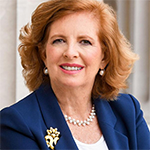
Dean Emerita, School of International and Public Affairs; Professor of Practice in International Economic Law and International Affairs
Areas of expertise: International trade and investment; Japan, China & Asia; competition law and policy; digital economy
Merit E. Janow has extensive experience in academia, government and business, and has been involved with the Asia-Pacific region for her entire life. She served as Dean of the faculty of Columbia University’s School of International and Public Affairs (SIPA) from July 2013 through December 2021. Professor Janow has had three periods of government service. In December 2003, while at Columbia University, she was elected by the WTO Membership as one of the seven Members of the World Trade Organization’s (WTO) Appellate Body. From 1997-2000, Janow served as the Executive Director of the first international antitrust advisory committee to the Attorney General and Assistant Attorney General for Antitrust of the US Justice Department. From 1989 to 1993, prior to joining Columbia University, Janow served as Deputy Assistant USTR for Japan and China in the Executive Office of the President.

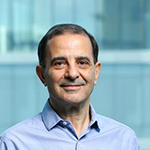
Kamel Jedidi
Jerome A. Chazen Professor of Global Business
Columbia Business School
Area of expertise: Consumer marketing behavior
Dr. Jedidi has extensively published in leading marketing and statistical journals. His research interests include pricing, product positioning, and market segmentation. He is senior Editor for the Consumer Needs and Solutions Journal and serves on the editorial board for the Journal of Business-to-Business Marketing. Dr. Jedidi has conducted seminars at several business conferences and universities and also spoken at and consulted with several multinational companies. He is a Founding Trustee of the Marketing Accountability Standards Board (MASB) and a member of the Faculty Steering Committee, Columbia Global Centers (Amman).
Recent media:
"It Just Got Easier for Content Platforms to Use More Ethical Recommender Algorithms," VentureBeat, February 17, 2023
"Why Entrepreneurs Should Use 360 Degree Market Research," Forbes, August 10, 2019
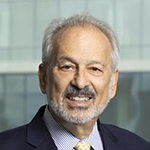

Todd Jick
Senior Lecturer in Discipline in Business
Bernstein Faculty Leader, Sanford C. Bernstein & Co. Center for Leadership and Ethics
Areas of expertise: Leadership and organizational behavior
Professor Jick is a leading expert in leadership and organizational change. He was a professor at the Harvard Business School for 10 years and a visiting professor, organizational behavior-human resource management at INSEAD and London Business School. His book, The Boundaryless Organization (with Ashkenas, Ulrich and Kerr, 2nd ed.) won the Accord Group Executive Leadership best business book of the year award. His podcast on the Future of the Workforce (Brave New Work) reached wide audiences as part of his focus on leading edge management practices called “Management 2.0.”
Recent media:
"A Real Sense of Chaos Ensued: Is It Time to Embrace the Corporate Ladder?" BBC, July 25, 2023
"Bystanders No More, America's CEOs Must Pay Attention to Societal Divides," Forbes, November 7, 2022
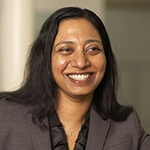

Gita Johar
Meyer Feldberg Professor of Business Marketing
Columbia Business School
Area of expertise: Consumer psychology
Gita V. Johar (PhD NYU 1993; MBA Indian Institute of Management Calcutta 1985) has been on the faculty of Columbia Business School since 1992 and is currently the Meyer Feldberg Professor of Business. She served as the school’s inaugural Vice Dean for Diversity, Equity and Inclusion from 2019 to 2021. She served as co-editor of the premier academic journal on consumer behavior, the Journal of Consumer Research from July 2014 to December 2017 and co-edited a 2021 Special Issue of the Journal of Marketing on Better Marketing for a Better World. She is currently the President of the Society for Consumer Psychology (2022–2023).
Recent media:
"Can Zoom Be a Tool for Teaching Anti-Racism?," INSEAD Knowledge, August 19, 2020
"Scaling Big in India: Leveraging Behavioral Science to Help Feed Millions," Stanford Social Innovation Review, August 18, 2020


Bruce Kogut
Sanford C. Bernstein & Co. Professor of Leadership and Ethics
Columbia Business School
Area of expertise: Globalization leadership & organizational behavior strategy
Professor Kogut’s current research focuses on governance and corporate compensation, social capital markets His current research focuses on governance and corporate compensation, social capital markets and social metrics, and the application of machine learning to the study of solving social problems. His work has led to publications in 538 on political slant in economic research, proposals to set gender mandates for boards by estimating tipping points, as well as on the use of structured finance for charitable giving to release value in the portfolio. In cooperation with IFMR in Chennai, colleagues and he completed a study on the prosocial attitudes of employees and incentives on the productivity of microfinance institutions. Most recently, colleagues and he completed research on machine-human learning using a video game setting, and he is working with NervTech and the University of Ljubljana on machine-human interactions in the autonomous driving vehicle simulators.


Petros Mavroidis
Edwin B. Parker Professor of Foreign and Comparative Law
Columbia Law School
Area of expertise: International and comparative law
Petros C. Mavroidis served as a member of the World Trade Organization (WTO) legal affairs division from 1992 to 1995 and has been a legal adviser to the WTO since 1996. He was the chief co-rapporteur for the American Law Institute study “Principles of International Trade: The WTO” (2013). Mavroidis has written 10 books and scores of peer-reviewed journal articles and book chapters. His book The Regulation of International Trade won the 2017 Certificate of Merit in International Law for a distinguished contribution to the field from the Executive Council of the American Society of International Law. The two-volume tome is a meticulous exploration of WTO agreements regulating trade in goods. The third volume of the series, dealing with Trade in Services, was published by MIT Press in 2020.
Recent media:
"A WTO Member's Home Is Its Castle," East Asia Forum, August 9, 2022
"Only the EU Can Save Football From Itself," Euronews, December 11, 2021

Stephan Meier
James P. Gorman Professor of Business, Chair of Management Division
Columbia Business School
Area of expertise: Globalization, Leadership, and Organizational Behavior Strategy
Stephan Meier investigates the impact of psychology and economics on human decision-making and its implications for public policy and firms' strategy. Current research topics include how non-selfish behavior affect organizations or the effect of borrower's decision-making on financial institutions' strategy. His work has been published in the leading academic journals including the American Economic Review and Management Science, and has been profiled by the press such as The Economist, Wall Street Journal, Financial Times, New York Times, Los Angeles Times, and Neue Zuercher Zeitung.
Recent media:
"The war on remote work is not over. But one group in particular is heading back to the office," MarketWatch, June 2023
"Landing a New Job Doesn't Come with the Pay Raise It Used To," Wall Street Journal, April 27, 2023 (subscription required)
"Bad Bosses Go Viral," Axios, April 22, 2023

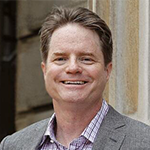
Michael Morris
Chavkin-Chang Professor of Leadership
Columbia Business School
Area of expertise: Climate, consumer behavior, decision making, negotiations, globalization, leadership, organizational behavior
Michael Morris is a Chaired Professor in the Management Division at CBS and also serves as Professor in the Psychology Department of Columbia University. Professor Morris has published over 200 articles in the leading psychology and management journals on topics such as individual decision-making, interpersonal influence, and social networks. His early research on culture and cognition played a key role in the blossoming of the field of cultural psychology. His scientific papers have received international awards from scholarly societies in the fields of social psychology, judgment and decision-making, psychology in the public interest, Asian psychology, management, human resources, marketing, and others.


Christian Moser
Assistant Professor, Economics
Columbia Business School
Area of expertise: Entrepreneurship & innovation, financial institutions, labor markets, macroeconomics, microeconomics
Christian is an Assistant Professor within the Finance and Economics Division at Columbia Business School. His research focuses on macroeconomics and labor economics, with additional interests in public economics. The common theme behind his research is to understand the determinants of earnings inequality and the role redistributive policies.
Recent media:
"Gender Pay Gap Debate: It's Not Just About the Money," Thomson Reuters Foundation News, August 25, 2021

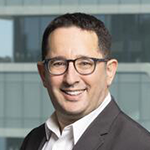
Oded Netzer
Vice Dean for Research, Dean's Office
Arthur J. Samberg Professor of Business
Columbia Business School
Area of Expertise: AI and business analytics, digital future initiative marketing
Professor Netzer's expertise centers on one of the major business challenges of the data-rich environment: developing quantitative methods that leverage data to gain a deeper understanding of customer behavior and guide firms' decisions. He focuses primarily on building statistical and econometric models to measure consumer preferences and understand how customer choices change over time, and across contexts. Most notably, he has developed a framework for managing firms' customer bases through dynamic segmentation. More recently, his research focuses on leveraging text-mining techniques for business applications.
Recent media:
"Could Generative AI Do a CEO's Job?," Marketwatch, August 26, 2023
"These Jobs Are Most Likely to Be Replaced by Chatbots Such as ChatGPT," CBS News, February 2, 2023
"In a Data-Led World, Intuition Still Matters," Strategy + Business, November 17, 2022


Arvind Panagariya
Professor of Economics, Jagdish Bhagwati Professor of Indian Political Economy
School of International Public Affairs, Columbia University
Areas of expertise: International trade and Indian economy
Professor Panagariya has written or edited ten books. His latest book, India: The Emerging Giant, was published in March 2008 by the Oxford University Press, New York and has been described as the "definitive book on the Indian economy" by Fareed Zakaria and "a tour de horizon and a tour de force" by Jagdish Bhagwati. His previous books include The Economics of Preferential Trade Agreements, 1996, AEI Press (with Jagdish Bhagwati) and Lectures on International Trade, 1998, MIT Press (with J. Bhagwati and T.N. Srinivasan). Panagariya writes a monthly column in the Economic Times, India's top financial daily. He has also written guest columns in the Financial Times, Wall Street Journal, Hindu, India Today and Outlook. He has appeared on numerous national and foreign television channels.
Recent media:
"The NDTV Dialogues with Renowned Economist Arvind Panagariya," NDTV, August 13, 2023
"How India's Economy Will Overtake the U.S.'s," Time, July 28, 2023
"Lots of people? Good. Tiny plots? Bad," Times of India, May 11, 2023

Stephen Penman
George O. May Professor Emeritus of Financial Accounting in the Faculty of Business
Accounting Division
Director
MS in Accounting & Fundamental Analysis Program
Areas of expertise: Valuation of equity and security analysis
Stephen Penman's research deals with the valuation of equity and the role of accounting information in security analysis, and a number of his papers deal with accounting policy issues. He has published widely in finance and accounting journals and has conducted seminars on accounting and analysis for academic and professional audiences. His book, Accounting for Value, was published by Columbia University Press in January, 2011. In 2019, Penman was elected to the Accounting Hall of Fame. In 2020, he was elected to the Australian Accounting Hall of Fame.

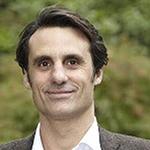
Andrea Prat
Richard Paul Richman Professor of Business
Columbia Business School
Areas of expertise: Organizational economics, political economy, financial economics
Professor Prat's work focuses on organizational economics and political economy. His current research in organizational economics explores - through theoretical modeling, field experiments, and data analysis - issues such as incentive provision, corporate leadership, employee motivation, and organizational language. Professor Prat is a principal investigator of the Executive Time Use Project. His current research in political economy attempts to define and measure the influence of the media industry on the democratic process.

Shivaram Rajgopal
Roy Bernard Kester and T.W. Byrnes Professor of Accounting and Auditing
Columbia Business School
Areas of expertise: Financial reporting, earnings quality, fraud, executive compensation, corporate culture
Professor Rajgopal is an Associate Editor at the Journal of Accounting and Economics and was an editor at Contemporary Accounting Research. He was on the editorial board of The Accounting Review from 2003 to 2011. He is widely published in finance and accounting journals and is frequently cited in the popular press, including The Wall Street Journal, The New York Times, Bloomberg, Fortune, Forbes, Financial Times, and The Economist.

Medini R. Singh
Senior Lecturer in Discipline in Business
Columbia Business School
Areas of expertise: Supply chain management, service operations
Professor Singh's research focuses on service and supply chain design, at both the tactical and strategic level. Recently, he has been interested in the role of speed in competitiveness and in the risks and rewards of process outsourcing and off-shoring.


M. Suresh Sundaresan
Chase Manhattan Bank Foundation Professor of Financial Institutions
Columbia Business School
Area of expertise: Treasury auctions, bidding, default risk, habit formation, term structure of interest rates, asset pricing, investment theory, pension asset allocation, swaps, options, forwards, futures, fixed-income securities markets and risk management
Professor Sundaresan's current research work focuses on corporate bankruptcy, design of bankruptcy code, the role of collateral in interest rate swaps, and the role of central bank in providing liquidity to private capital markets. More recently, he has been working on micro-lending with a view to characterizing defaults, recovery rates, and interest rates in micro-loans. The research attempts to characterize the efforts that are needed to lower the borrowing rates. Another ongoing project explores whether the duration of the borrowing relationship has led to an improvement of borrower's welfare.


Jan Svejnar
James T. Shotwell Professor of Global Political Economy
Columbia University, School of International and Public Affairs
Areas of expertise: The effect of foreign investment on domestic firms, the effect of billionaires on economic performance, the determinants of corporate structure, ownership and performance, the effect of recession on wages and employment, global economic governance, economic policies, performance of countries at different levels of economic development
Professor Svejnar previously served as director of the International Policy Center at the Gerald R. Ford School of Public Policy at the University of Michigan. He is a founder and Chairman of CERGE-EI in Prague (an American-style Ph.D. program in economics that educates economists for Central-East Europe and the Newly Independent States). He serves as the Chairman of the Supervisory Board of CSOB Bank and co-editor of Economics of Transition. He is a Fellow of the European Economic Association and Research Fellow of the Center for Economic Policy Research (London) and Institute for the Study of Labor (IZA, Bonn). He focuses his research on (i) the effects of government policies on firms, labor and capital markets; (ii) corporate, national, and global governance and performance; and (iii) entrepreneurship, innovation and investment. /p>


Bruce Usher
Co-director, Tamer Center for Social Enterprise
Elizabeth B. Strickler '86 and Mark T. Gallogly '86 Faculty Director
Professor of Professional Practice Columbia Business School
Areas of expertise: Entrepreneurship, finance, innovation, international development, social enterprise
Director of the Tamer Center for Social Enterprise at Columbia Business School. Professor Usher teaches on the intersection of finance, social and environmental issues, and is a recipient of the Singhvi Prize for Scholarship in the Classroom, the Lear Award, and the Dean’s Award for Teaching Excellence. Prior to his work at Columbia, Professor Usher was CEO of EcoSecurities Group plc, which developed greenhouse gas emission reduction projects in developing countries. EcoSecurities was acquired by JP Morgan in 2009. Professor Usher was previously the co-founder and CEO of TreasuryConnect LLC, which provided electronic trading solutions to banks and was acquired in 2001. Prior to that, he worked in financial services for twelve years in New York and Tokyo. Professor Usher is an active investor and advisor to entrepreneurial ventures focused on climate change and clean energy (UsherWorks.com). He is a board member of Community Energy, OptiRTC, and CapShift, and is Chair of the Tamer Fund for Social Ventures. Usher earned an MBA from Harvard Business School.


Eric Verhoogen
Professor, Department of Economics and School of International and Public Affairs
Co-Director, Center for Development Economics and Policy
Columbia University
Area of expertise: International trade and development
Professor Verhoogen's main research interest is applied microeconomic research on firms in developing countries. This area overlaps with the fields of development economics, international trade, labor economics, and industrial organization. A recurrent theme in his work is the process of quality upgrading in the manufacturing sectors of developing countries — its causes, consequences, and broader implications.
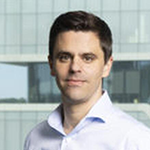
Gernot Wagner
Senior Lecturer
Columbia Business School
Gernot Wagner is a climate economist at Columbia Business School. His research, writing, and teaching focus on climate risks and climate policy. Gernot writes a monthly column for Project Syndicate and has written four books: Geoengineering: the Gamble, published by Polity (2021); Stadt, Land, Klima (“City, Country, Climate”), published, in German, by Brandstätter Verlag (2021); Climate Shock, joint with Harvard’s Martin Weitzman and published by Princeton (2015), among others, a Top 15 Financial Times McKinsey Business Book of the Year 2015, and Austria’s Natural Science Book of the Year 2017; and But will the planet notice?, published by Hill & Wang/Farrar Strauss & Giroux (2011).
Recent media:
"Carbon Capture and Delay," Project Syndicate, August 10, 2023
"Climate Risk Is Financial Risk," Forbes Breaking News, June 9, 2023

Dan J. Wang
David W. Zalaznick Associate Professor of Business Management
Columbia Business School
Area of expertise: Social networks
Dan Wang’s research analyzes how social networks catalyze the transformation of knowledge across organizational and cultural boundaries to drive entrepreneurship and innovation. His main project focuses on ‘reverse brain drain’, or how the return migration of skilled professionals spreads knowledge, practices, and technologies to different parts of the world. He has also studied entrepreneurship and workplace innovation among returnees. In other work, he has analyzed the implications of different network patterns of venture capital investment syndication for the innovation performance of start-ups. Using similar approaches, he has also developed a research stream focused on organizational understanding of social protest outcomes, using network relationships across social movement actors and organizations to predict innovation, knowledge sharing, and tactical choices across activist groups.


Shang-Jin Wei
N.T. Wang Professor of Chinese Business and Economy
Columbia Business School
Areas of expertise: International finance, trade and Chinese economy
In addition to his teaching duties, Professor Wei is Director for the National Bureau of Economic Research's Working Group on the Chinese Economy and a Research Fellow at the Center for Economic Policy Research (Europe). Before joining Columbia University, he held positions as Assistant Director, Chief of Trade and Investment Division, Chief of Mission to Myanmar (Burma) at the International Monetary Fund, the New Century Chair Senior Fellow at the Brookings Institution, and Associate Professor at Harvard University's Kennedy School of Government. Professor Wei has published extensively on topics on international finance, trade, and the Chinese economy in leading academic journals. His research has also been reported in Financial Times, Wall Street Journal, Economist, Business Week, Chicago Tribune, and other news media.


David Weinstein
Carl Sumner Shoup Professor of Japanese Economics
Columbia University, Department of Economics
Areas of expertise: International trade and Japanese economy
Previously, Professor Weinstein was a Senior Economist and a consultant at the Federal Reserve Bank of New York and at the Federal Reserve Bank of San Francisco and the Federal Reserve Board of Governors. He also served on the Council of Economic Advisors from 1989 to 1990. His teaching and research interests include international economics, macroeconomics, corporate finance, the Japanese economy, and industrial policy.


Pierre Yared
MUTB Professor of Business
Vice Dean, Executive Education
Columbia Business School
Areas of expertise: Operations/management science and applied economics
Professor Yared's research, which has been published in leading academic journals, focuses on macroeconomic policy, political economy, and growth. He is a research associate of the National Bureau of Economic Research and an associate editor of the American Economic Review, the Journal of Monetary Economics, and the Review of Economic Studies.

Amir Ziv
Professor of Professional Practice, Accounting
Columbia Business School
Areas of expertise: Accounting, competitive strategy, corporate finance, economics
Professor Ziv’s research deals with the effects of accounting regimes and alternatives on economic environments, and is important to the understanding of accounting institutions and phenomena. Specifically, he deals with the role of accounting information in organizational design, financial disclosure, performance evaluation, auditing, product quality, and information transmission among strategic players.